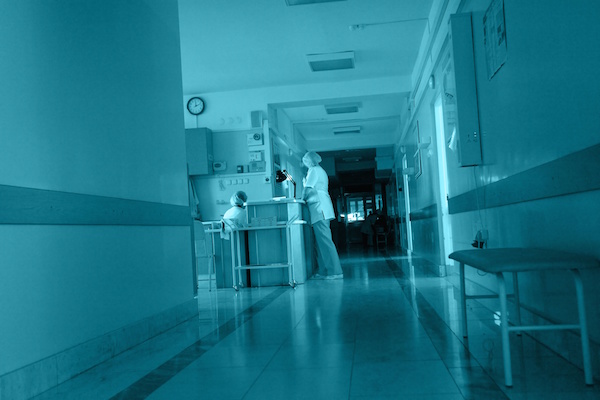
WEDNESDAY, Oct. 5 (HealthDay News) — Older adults who think they’re not in tip-top health may have a greater risk of developing dementia than folks who believe they’re healthy, French researchers report in Oct. 5 issue of the journal Neurology.
Someday, “having people rate their own health may be a simple tool for doctors to determine a person’s risk of dementia, especially for people with no symptoms or memory problems,” Dr. Christophe Tzourio, of the neuroepidemiology unit at the Victor Segalen Bordeaux II University, said in a journal news release.
Still, not everyone was convinced by the research.
“It is one of the first studies to look at this correlation and we really don’t know what that means,” said Heather M. Snyder, senior associate director for Medical & Scientific Relations at the Alzheimer’s Association. She was not involved in the study.
In their report, published online Oct. 5 in Neurology, Tzourio’s team suggest that doctors might use a patient’s self-rated health to predict the potential for mental decline.
They collected data on almost 8,200 people aged 65 years and older who were asked to rate their health at the start of the study.
During roughly seven years of follow-up, 618 people developed dementia. For those who said their health was poor, the risk for developing dementia was 70 percent higher than for those who rated their health as good. For those who rated their health as fair, the risk was 34 percent higher, they noted.
Of course, health problems such as heart disease have been strongly linked to an increased odds for dementias — including Alzheimer’s disease — in prior studies. But the French team note that the increase in risk for dementia tied to poor self-reported health stuck even after they accounted for heart disease and other chronic ailments.
Furthermore, the association between fair and poor health ratings and dementia was even greater among those who had no memory or thinking skill problems at the time, Tzourio’s group found.
For these symptom-free people who rated their health as poor, the risk of developing dementia was almost twice as high compared to those who rated their health as good, the researchers found. In the absence of a full assessment of their mental skills, their self-reported health was therefore the only indicator of a possible decline in brain functioning, the authors said.
What factors might be contributing to the effect? “We know that having a large social network and social activities are associated with a decreased risk of dementia,” Tzourio noted in the news release. “Therefore, it’s possible that rating one’s health as poor might be associated with behaviors that limit social interaction and in turn accelerate the dementia process,” he speculated.
However, before the new findings can be taken as fact, they need to be replicated, Snyder said. “We would really need to have a much larger study in a more diverse population to assess and figure out what this correlation means,” she said.
What is known is that Alzheimer’s, the most common form of dementia, starts to develop 10 to 20 years before symptoms show, Snyder said. So, these feelings about general health might indicate that a person senses something has changed before the disease is evident, she added.
More information
For more information on dementia, visit the U.S. National Library of Medicine.

